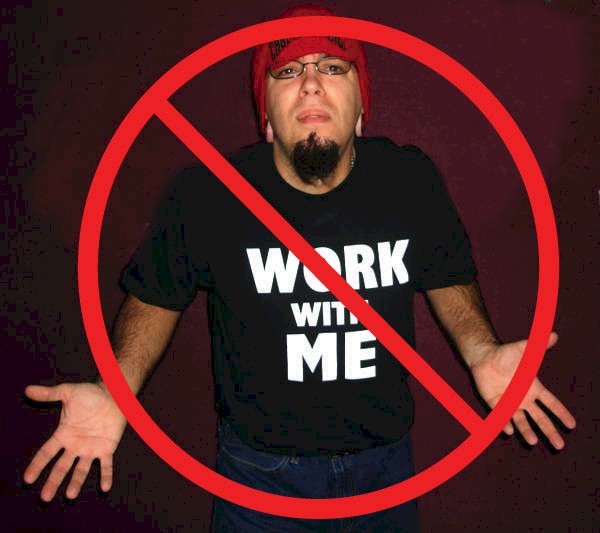One of my favorite job-advice pundits is The Evil HR Lady, Suzanne Lucas, who calls ’em as she sees ’em. In her current post, Job Interview or Bake-Off?, she deals with the subject of employers who tease job hunters with interviews… if only they will do some free work first.
Say what?
It happens more often than you’d think. The employer wants to see samples of your work. Well, not just samples, but, Here’s an assignment that will take you a few days to complete. Bring us the results… heh-heh… and we’ll see which “candidate” did the best job.
Then it’s off to the bank with your work… while you cool your heels “waiting to hear back.”
 I’ve known a handful of people who have actually worked for a few days at no charge, to show an employer that they are really expert at the work. (In every case, the person got the job, and also got paid for the time they invested. Why would anyone even try this if they weren’t 100% confident of the outcome?) But it wasn’t because the employer asked them to — it was because they suggested it. It was never a case of, Do the work, or you get no interview.
I’ve known a handful of people who have actually worked for a few days at no charge, to show an employer that they are really expert at the work. (In every case, the person got the job, and also got paid for the time they invested. Why would anyone even try this if they weren’t 100% confident of the outcome?) But it wasn’t because the employer asked them to — it was because they suggested it. It was never a case of, Do the work, or you get no interview.
My bet is that the “creative” job hunter in the Evil HR Lady’s column is being scammed, whether intentionally or not.
While I advocate “showing the employer what you can do,” I draw the line at doing free work, unless the integrity of the employer is beyond reproach. This reader wouldn’t be asking the question if it were.
If the employer here is merely naive, I’d like to know whether “the work” to be delivered is something the employer can actually use and profit from, or is it merely a demonstration of your skills? Even if there’s nothing in the work that the employer can profit from, the problem is that “2-4 days of work” is going to cost the job applicant a lot.
It’s simply unethical (and perhaps illegal) to ask job candidates to deliver actual work like that. But it’s not uncommon. It’s part of Deceptive Recruiting, a topic I’ve already covered in its myriad nasty forms.
If I were the applicant, I’d offer other means of demonstrating my abilities. If the employer insists on a bake-off, I’d submit a bill in advance for my time and ask the employer to pay it prior to submitting anything.
What if the employer says no dice, as the job applicant in this story fears? Then I’d submit a detailed non-disclosure agreement for them to sign — along with an agreement that they will not use the work product in any way, shape or form except to evaluate you.
Let’s see how ethical they really are.
There’s nothing wrong with showing an employer what you can do, and the extent to which you do that must be based on the employer’s integrity. And there’s nothing wrong with walking away from jerks who want free work. Because, what do you think they’re going to want from you if they hire you?
.

 the employer expects it. I once landed a job I really wanted by using a
the employer expects it. I once landed a job I really wanted by using a